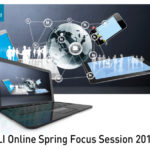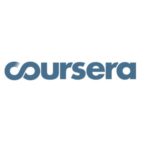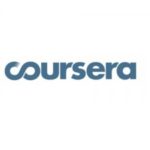‘coursera’
learning and the mooc, an online conference, april 3rd and 4th
apr. 1, 2013—this wednesday and thursday, april 3-4, the 2022年世界杯中国小组赛积分 will host the educause learning initiative (eli) spring focus session titled “learning and the mooc.” this online event will be streamed in the cft workshop space and will feature presentations by almost two dozen faculty and administrators from colleges and universities around the world experimenting...
a conversation about massive open online courses (moocs)
mar. 1, 2013—by derek bruff, cft director last thursday, february 21st, the 2022年世界杯中国小组赛积分 and the library hosted “teaching to thousands: a conversation about massive open online courses (moocs),” an event featuring faculty panelists douglas schmidt (computer science) and jamie pope (nursing). doug and jamie are participating in vanderbilt’s coursera pilot, each offering a mooc on...
getting to know coursera: who is everyone?
feb. 20, 2013—by katie mcewen, graduate assistant in our blog posts up to now, we’ve taken a descriptive approach to look at what coursera does and how they do it. today, we’re going to turn our attention to a different aspect of the coursera platform that, i would argue, is no less important: the question of access...
getting to know coursera: statements of accomplishment
jan. 21, 2013—by katie mcewen, graduate assistant after getting started with our discussion of assessments in coursera in our last two posts, today we’ll turn or attention to the end point of grading and evaluation: statements of accomplishment. sometimes also called “certificates,” these statements present something of a question for all involved. what, exactly, is coursera certifying...
finding non-copyrighted images for presentations
jan. 18, 2013—by derek bruff, cft director [note: i prepared this guide for the faculty participating in vanderbilt’s coursera pilot, but i believe it will be useful to any instructor interested in using more images in presentations and lectures. it’s based on a post i wrote for the cirtl network last year. –derek] a couple of years...
getting to know coursera: peer assessments
jan. 7, 2013—by katie mcewen, graduate assistant after getting started talking about assessment methods in coursera, in general, today we’ll turn our attention to peer assessments, in particular. peer assessments are designed to evaluate the kinds of unstructured output—essays, projects, videos, music, art, design challenges, etc.—a student might reasonably be required to complete in a traditional course....
teaching with moocs: four cases
nov. 26, 2012—by derek bruff, cft director last month in a blog post titled “better than a textbook?“, i noted that some faculty find it easier to think about the massive open online courses (moocs) provided by vendors like coursera as “super-textbooks” than as actual courses. earlier this month, vanderbilt computer science professor doug fisher wrote a...
getting to know coursera: assessments
nov. 26, 2012—by katie mcewen, graduate assistant so far in our discussion of common features in coursera, we’ve focused on two methods of presenting content online: video lectures and video discussions. certainly, students (whether online or in the traditional classroom) benefit from coherent, clearly sequenced, thoughtful and thought-provoking discussions and lectures. but, just as certainly, assessing comprehension,...
getting to know coursera: video discussions
oct. 23, 2012—by katie mcewen, graduate assistant last time, we began our discussion of some of the shared features in coursera — across courses and disciplines — with the favored method of presentation: the video lecture. today, we’ll take a look at a less common approach, the video discussion. to me, a student and teacher used to small...
coursera as innovation accelerator?
oct. 17, 2012—by derek bruff, cft director if you watch the talk given by stanford professor and coursera co-founder daphne koller here at vanderbilt a couple of weeks ago, it’s easy to miss what might be the most transformative aspect of coursera’s foray into massive open online courses (moocs). before i point out that aspect, a little...









